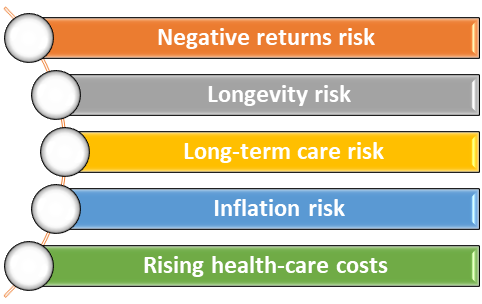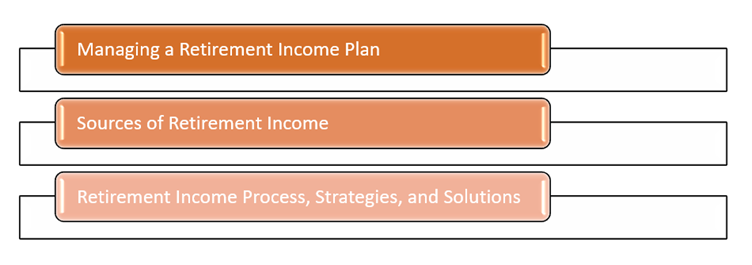Retirement Income Certified Professional (RICP)
Updated on 2023-08-29T12:01:35.715280Z
What is a Retirement Income Certified Professional (RICP)?
A financial expert that specialises in retirement income planning is referred to as a Retirement Income Certified Professional (RICP).
After completing the curriculum for retirement income professionals, financial experts can become RICPs. Once certified, RICPs can advise near-retirees and retirees on how to best use the assets they have collected for retirement to avoid running out of money too soon and live comfortably within a realistic budget.
Summary
- A certified retirement income professional is an expert in retirement income planning.
- Professionals who have passed the American College of Financial Professionals' RICP training curriculum are given the designation.
- RICPs assist near-retirees and retirees in making sustainable use of the assets they have amassed for retirement.
- Applicants for the RICP must have three years of experience in the industry.
Frequently Asked Questions (FAQs)
How to become a Retirement Income Certified Professional( RICP)?
What does it mean to be a Retirement Income Certified Professional (RICP)?
A Retirement Income Certified Professional (RICP) is a financial specialist who assist people nearing retirement age or who are retired build a plan to ensure that their income needs are satisfied for the duration of their retirement, which can be anywhere from 20 to 30 years.
Moreover, it entails determining how to produce income from assets amassed for retirement. In a retirement income plan, there are several essential hazards to consider. These are some of them:
Negative returns risk: When regular withdrawals are made during the first few years of retirement, negative returns might hurt a portfolio.
Longevity risk: The possibility of outliving your assets if you live too long.
Long-term care risk: You may need guidance for an extended period.
Inflation risk: If inflation rises during retirement, purchasing power will be reduced.
Rising health-care costs: It must be factored into a retirement income strategy.

Source: Copyright © 2021 Kalkine Media
How do you become a certified professional in retirement income?
The term "RICP" refers to a professional title awarded to persons who wish to specialise in retirement financial planning. The American College of Financial Services (ACFS) of Bryn Mawr, Pennsylvania, is the certification's issuing organisation. Its goal is to prepare financial advisers to help clients construct long-term retirement plans.
It is, however, a non-profit organisation that gives several professional designations and courses geared toward seasoned financial sector professionals. In 1927, the college opened with a chartered life underwriter (CLU) curriculum. It now provides master's degrees, a variety of certifications, and various continuing education programmes.
Moreover, working professionals who often interact with retirees and near-retirees are the RICP's target audience, most of the college's offerings.
ACFS recommends the training to accountants, bankers, lawyers, and other professionals who assist financial planners, in addition to financial planners and advisers. The primary requirement for enrolment is that candidates have three or more years of relevant job experience.
Pupils can finish the RICP curriculum at their own pace because it is entirely self-study and available online. Certification requires completion of three distinct courses:

Source: Copyright © 2021 Kalkine Media
As per the ACFS, each course needs 45 to 60 hours of study time. The total cost of tuition for all three courses is $2,450, while students can purchase individual courses for $950. All essential educational resources, exams, and access to on-demand online learning tools are included in the price.
RICP holders pay a $125 annual fee to the institution and maintain a strong reputation in their specialty. Therefore, they should re-certify every two years by finishing 30 hours of continuing education. In addition, ACFS expects continued adherence to its code of ethics as well as up-to-date contact information.
What distinguishes an RICP from a certified financial planner?
A retirement income certified professional concentrates exclusively on retirement planning ideas and solutions, whereas a certified financial planner (CFP) covers all aspects of financial planning.
An RICP covers a wide range of topics related to retirement planning, including how retirees can use their assets, social security planning, and creating a plan to ensure that they are cared for if they cannot care for themselves. These advisors have been trained to deal with any severe hurdles in their customers' retirement income plans. Retirement income planning needs constant monitoring and adjustments as needed because:
- Investments may lose value.
- Family situations may change, such as family members experience financial difficulties and temporarily relocating.
- The emphasis changes from saving to withdrawing, and clients must adjust to this shift.

Source: © Lisafx | Megapixl.com
What are the advantages of being an RICP?
Few things more crucial than making sure you have a solid retirement plan in place and increasing your assets' value. While any financial advisor should help with this work, a current RICP's specialisation may be of massive advantage.
Long-term care costs, estate planning, retirement plans, annuities, Medicare and other health insurance options, management of retirement income, tax implications, and reducing investment risk are all topics that RICPs must address with their clients. These duties are essential for individuals approaching retirement or playing catch-up after their peak working years.
At the moment, a RICPs practice may appeal to a bigger and rising population segment. Not only are there millions of people on the verge of retirement, but many of them are woefully underfunded and unprepared. These facts, taken together, create a significant market opportunity. Moreover, the time and money spent on certification might be well worth the effort from a professional standpoint.
Individuals who are about to retire or have retired require the assistance of well-trained and educated financial specialists to strengthen their retirement plans and develop appropriate solutions.